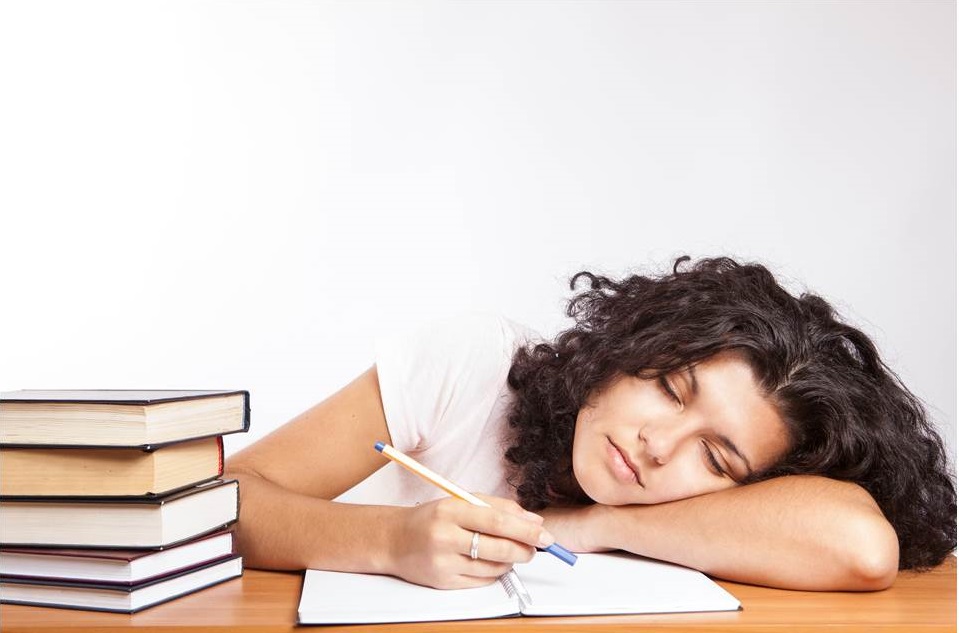
Energy drinks are a common go-to for teenagers, however many experts are calling for a ban due to the high sugar and caffeine content.
I spoke to Ninemsn Food about some of the effects these drinks are having on our health.
“Energy drinks such as Red Bull, V and Monster are “another form of drugs” because of their high sugar and caffeine content, according to UK experts tasked with overhauling child nutrition.
Meanwhile, Australian experts say the drinks are helping ruin the sleep and health of Aussie teenagers and should be restricted.
“Energy drinks are effectively another form of drugs,” British Government adviser John Vincent said.
“They have a huge effect on [young people]’s ability to concentrate, how they feel, and it’s having health effects.”
The UK experts are especially concerned with the availability of energy drinks in schools there.
Highly addictive drug
While the drinks are not sold in schools in Australia, concerns about their widespread availability and effects on children and teenagers have been echoed here.
“Caffeine is the only highly addictive drug that’s readily available to kids under 18 years old,” said Dr Chris Seton, a paediatric sleep specialist at the Children’s Hospital at Westmead.
“A 10-year-old kid can walk into a shop and buy a dozen of his favourite energy drinks, and nobody bothers to limit it.”
Dr Seton said that many in the medical community would welcome restrictions on the sale of energy drinks to young people, and limiting of their consumption on school grounds, though “a lot of libertarians would not”.
He said that while some high schools had individual policies banning the drinks on their premises, he and other medical experts would favour a nation-wide ban in schools.
“If you asked whether children should be able to take cigarettes or alcohol on to school grounds, that answer would be ‘of course not’,” he told ninemsn.
Health concerns
The levels of sugar and acid in energy drinks are also a worry for nutritionists and dietitians.
“My biggest concerns include the amount of acid which is damaging for children’s teeth and bones, the amount of sugar which contributes to obesity, and the amount of caffeine, which is not recommended for children,” Dietitans Association of Australia spokesperson Melanie McGrice told ninemsn.
Dr Seton said that energy drinks, along with night-time use of electronic media, were contributing to a lack of sleep for many young people.
“Caffeinated drinks are a de facto measurement of tiredness in young people,” he said.
“When electronic devices became more popular and portable in the mid-2000s, that’s when energy drink intake increased a lot. In 2005 or 2006, over 500 energy drinks started. I don’t think it’s a coincidence.”
A survey for online diagnostic tool Sleepshack found that up to four in ten teenagers were drinking more than two energy drinks a day.
He said that some young people were consuming more than the equivalent of 15 cups of coffee before lunchtime.
“When we correlated that with the other data we had, it was clear that the kids who were drinking more were sleeping less.”
This was alongside the other health risks of high levels of caffeine consumption, like irregular heartbeats and headaches, said Dr Seton.
McGrice said that daily consumption of energy drinks in any amount could be damaging to the health of both children and adults.
“As a dietitian, I wouldn’t recommend that anyone consume energy drinks on a daily basis. There is no need for them,” she said.
“It’s certainly recommended that children don’t consume caffeine,” she added.
Calls for clearer labelling
The Australian Beverages Council opposed banning energy drinks or tightening regulations, saying that their research demonstrated 80 percent of energy drink consumers were over 20.
Dr Seaton said that, at least anecdotally, he had doubts about that figure, and that adults were more likely to turn to pharmaceutical wakefulness aids.
“Australia has the toughest energy drink regulations anywhere in the world,” Beverages Council spokesperson Geoff Parker told ninemsn.
“We have caps on caffeine content as well as mandatory advisory and warning statements.”
Parker said that 250ml energy drinks contain about 80mg of caffeine, where a strong espresso could have up to 200mg.
He said that if there were calls for energy drinks to be restricted, those restrictions should also apply to other products.
“The government’s own research shows that young people get their caffeine from a variety of sources,” he said. “Cola and energy drinks are already heavily regulated. If there are calls for age restrictions, there are other products that should be included.”
Dr Seton said energy drinks should be labelled with their caffeine equivalent in cups of instant coffee.
“It wouldn’t be in the interest of the energy drinks companies,” he said.
“The people who market these things are very clever. They’re not really energy drinks at all. While they do give an energy boost from sugar and caffeine, they also cause tiredness and disrupted sleep patterns.”
The DAA also said that clearer labelling was a priority.
“They should make clear that these products be labelled in a way that makes it clear they’re not suitable for children, pregnant or lactating women or people sensitive to caffeine,” said McGrice.”
Author: Lachlan Williams Approving editor: Rory Kinsella
